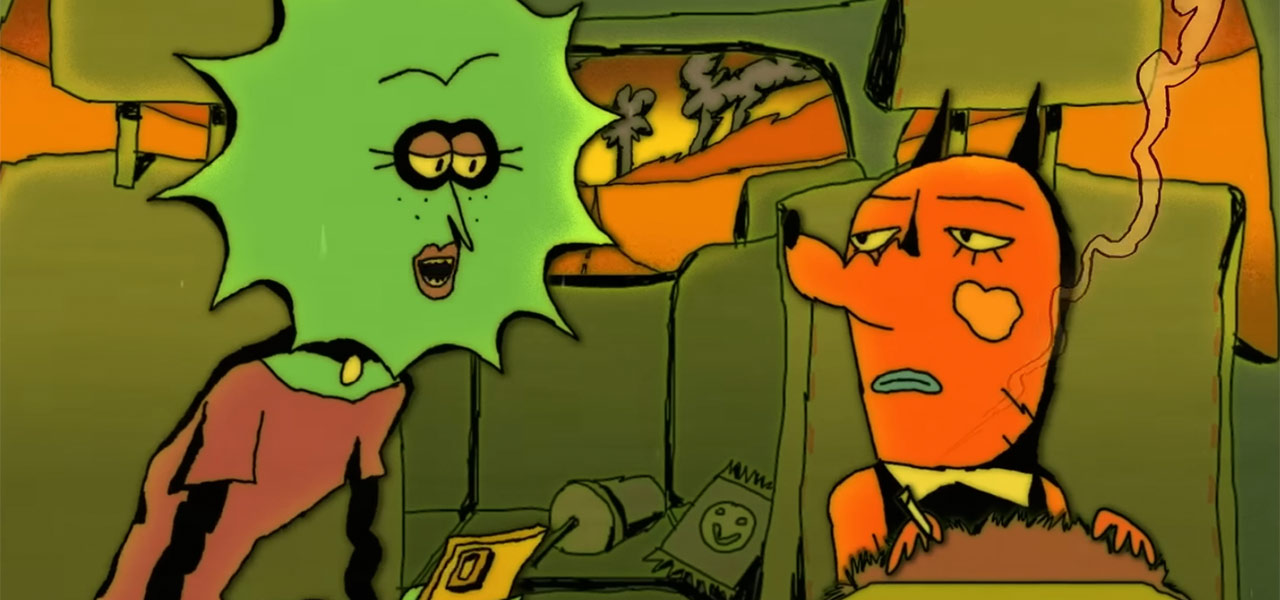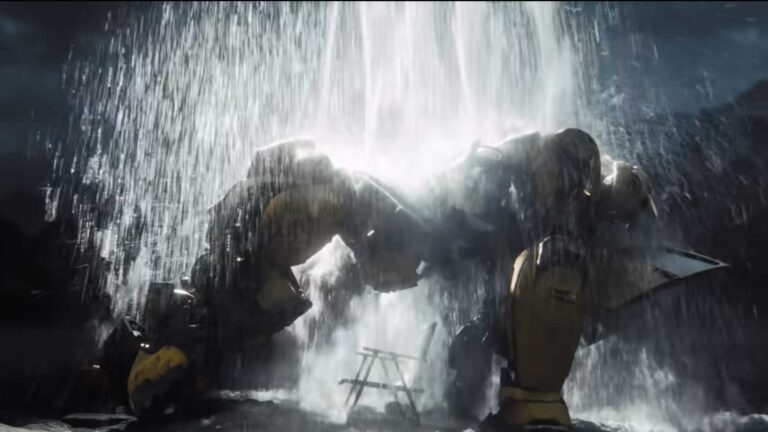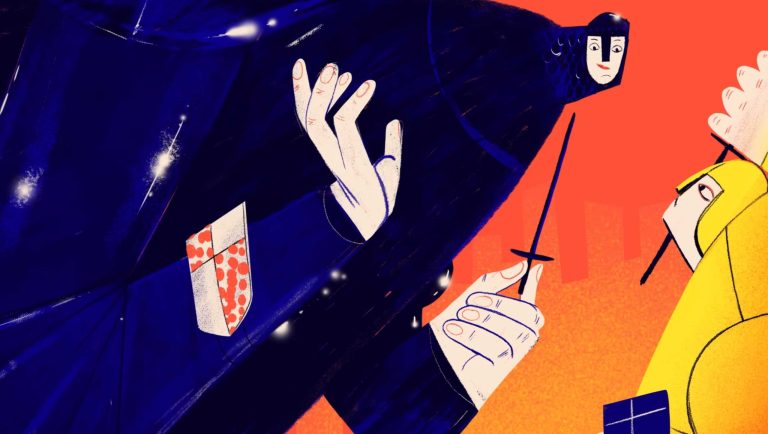
The film is full of acerbic commentary on people whose view of the world has become warped from spending too much time online. The characters’ obliviousness to the world in front of them is made clear when the Rapture arrives, an event that the characters eventually process through their own twisted lens.
[embedded content]
For these two (in the filmmaker’s own words) “L.A. babes,” a friend who doesn’t like their Instagram photo posted for #MentalHealthAwareness is a psychopath. And if you show up on fire in front of these self-absorbed icons, they just might think you’re trying to gaslight them.
Hewett tells her story in an efficient four minutes, packing in enough visual eye candy for a film twice its length. Character animation, production design and compositing are all excellent, even more so considering that this is a third-year film. You can usually tell in a a student film who’s destined to be an animator and who’s destined to become a filmmaker/creator. Hewett is clearly heading down the latter path.
The other day I saw (or rather read) someone yelling at someone else online for committing the audacious crime of being unaware of a lengthy, obscure acronym used to describe a marginalized group of people. The disproportionate vitriol over a trivial misunderstanding was both comical and disconcerting, a reminder of how the internet has rewired our brains to behave antagonistically even as we try to impact change and make the world a better place.
She makes bold aesthetic choices throughout, from a Day-Glo palette that heightens the apocalyptic setup to a wonderfully chunky thick-and-thin clean-up line. That clean-up line is effectively softened with a blur and slight “cel shadow” that adds warmth to the film.
These kind of perceived slights are the world of Amy Hewett’s Apocalypse YASSS: Two Girls, One Rapture, and its two main characters, who look like nostalgic castaways from a ’90s Klasky Csupo production.
Coming out of a pandemic where we’ve all spent just a bit too much time online, Hewett’s film serves as a timely reminder that online experiences are not necessarily human experiences and that we could all do well by spending some time away from our screens.






